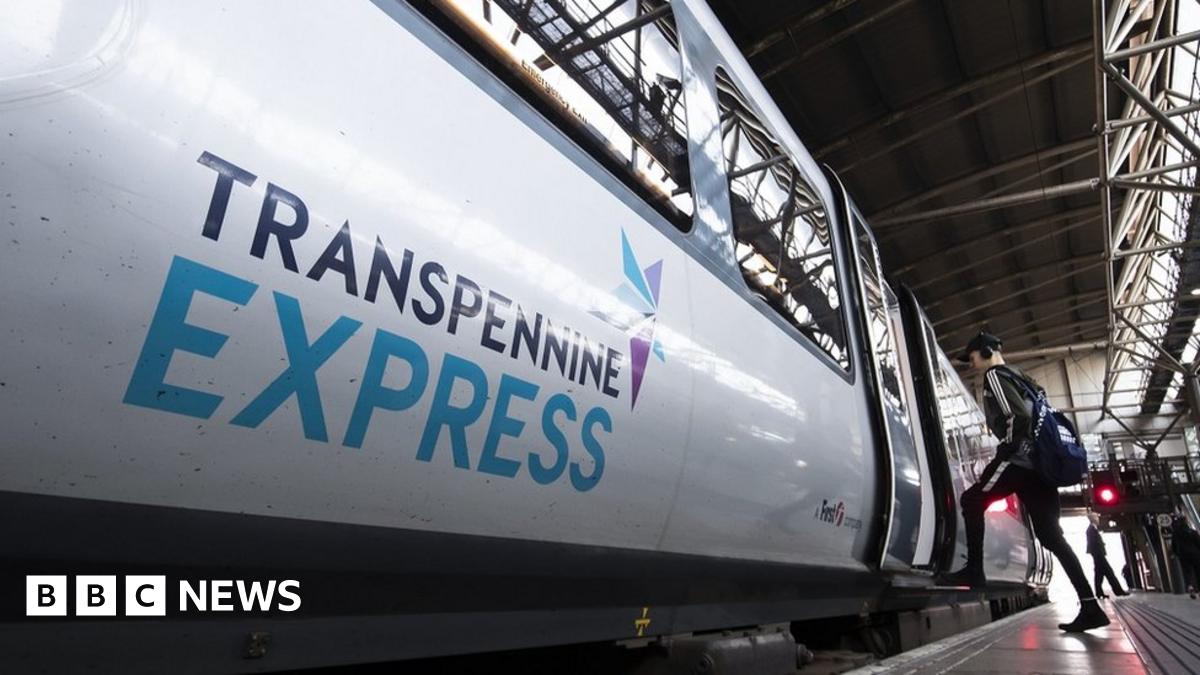BBC News have just released an article saying that Transpennine Express have cancelled 1,048 trains in a mont.
The rail franchise pulled far more trains than any other operator, figures released by the regulator show.

www.bbc.co.uk
The true extent of cancellations made by the Transpennine Express rail franchise has been revealed in figures published by the rail regulator.
In a four-week period the company cancelled 1,048 trains before 22:30 GMT on the day before they were due to run, and part of the route on a further 312.
Because the announcements were not made on the day, these cancellations were not included in official statistics.
Transpennine has said such decisions were "not taken lightly".
Usually these pre-planned cancellations - also called P-coding advance cancellations - are used when an emergency timetable is needed in response to poor weather or damage to rail infrastructure.
However, in each case the Transpennine trains, which operate across the North of England and into Scotland, were cancelled due to a shortage of available train crew.
The number of cancellations it made in this way far outstripped any other rail operator in the four weeks to 4 February. For example, government-owned Northern recorded 182 full cancellations, Transport for Wales 30 and LNER 17 - all attributed to staff shortages.
Releasing the figures the Office of Road and Rail (ORR) regulator said Transpennine's cancellations score for that period jumps from an official 8.9% to 23.7% when P-coding was taken into account.
Transpennine has previously said it only resorted to pre-planned cancellations "when resources are not available to cover advertised services in order to maximise advance notice of service changes for customers".
It blamed the "combined impact of prolonged higher-than-usual sickness levels, the significant driver training programme to facilitate the delivery of the Transpennine route upgrade and an aligned lack of a driver overtime agreement"
"[This has] led to the need to remove services from the timetable on a day-by-day basis through pre-planned cancellations."
However, the practice has come under fire from the ORR which published these figures for the first time on Friday.
In January the regulator said cancellations were at "record levels" and its investigation had "confirmed a further gap between cancellations statistics and the passenger experience".
It said this was "driven by an increased number of unrecorded 'pre-cancellations'".
"For a passenger this could mean that a train they expected to catch when they went to bed can disappear from the timetable by the time they leave for the station unaware that the train has been cancelled."
Labour and some Conservative MPs have called for Transpennine's contract, which expires on 28 May, to be withdrawn.
Last month Labour's shadow transport secretary Louise Haigh said the service had "never been worse".
Anthony Smith, chief executive of the independent watchdog Transport Focus, said passengers were left "confused and frustrated" when a train they expected to catch was cancelled the day before they were due to travel, and may well be surprised to find that this doesn't count as a cancellation.
"Things like this leave a sour taste in the mouth - and damage trust in the railway. The scale of this so-called 'P-coding' on some operators in recent months has highlighted the problem. We are pleased to be contributing the passenger voice in industry discussions about how to address the regulator's concerns."
Shocking Behaviour from TransPennine express, it just a shame what our railway have become. Very sad, unfortunately.
 )
)

